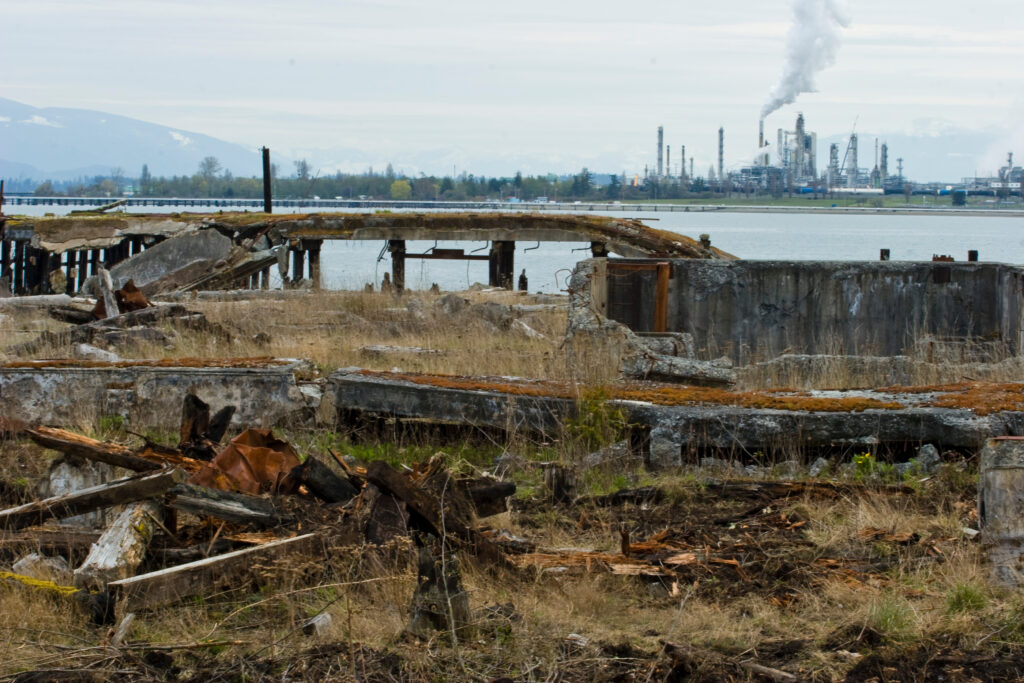
Introduction
Per- and polyfluoroalkyl substances (PFAS) have emerged as significant environmental pollutants. They come from various products like non-stick cookware, water-repellent fabrics, and firefighting foams. Landfills receive a vast range of waste, becoming critical sources of PFAS. Leachate, the liquid that drains or ‘leaches’ from a landfill, often carries these chemicals into the environment.
PFAS Characteristics
PFAS possess unique chemical properties. These include resistance to water, oil, and temperature. Such traits make them valuable in many industries but also incredibly persistent in the environment. However, they also earn the nickname “forever chemicals” due to their slow breakdown.
Leachate and PFAS
Landfills act as repositories for PFAS-laden waste. As waste decomposes, leachate forms and collects PFAS. This process allows PFAS to migrate from waste to leachate. Leachate then carries PFAS into groundwater, surface waters, and soils. Such migration poses a significant risk of PFAS entering drinking water systems and the broader environment.
The concentration of PFAS in leachate depends on the waste’s composition. Products like fast-food wrappers, stain-resistant carpets, and firefighting foams contribute to the PFAS load. As a result, leachate treatment becomes crucial. Without effective treatment, PFAS from leachate can spread, impacting water quality and ecosystem health.
Health Implications
PFAS exposure carries significant health risks. These chemicals have links to various adverse health effects. For instance, PFAS exposure can affect the immune system. It can reduce vaccine effectiveness and increase susceptibility to infectious diseases. PFAS also have associations with certain cancers, including kidney and testicular cancer. Liver damage is another concern. PFAS can interfere with liver function, leading to increased liver enzymes and liver disease.
The developmental effects of PFAS exposure are alarming. PFAS can affect growth, learning, and behavior in infants and older children. They also pose risks during pregnancy, potentially leading to high blood pressure and pre-eclampsia. The endocrine-disrupting properties of PFAS further complicate their health impact. They can interfere with natural hormone levels, affecting thyroid function and leading to metabolic issues.
Treatment Technologies
Treating leachate to remove PFAS requires advanced technologies. Common methods include granular activated carbon (GAC), ion exchange, and reverse osmosis. Each technology has its strengths and limitations. For example, GAC effectively adsorbs PFAS, but it requires regular replacement. Ion exchange offers a reusable option, but it may not capture all PFAS types. Reverse osmosis provides a robust barrier but comes with high operational costs.
Mitigation Strategies
To mitigate PFAS pollution from landfill leachate, several strategies prove effective. First, reducing PFAS in products at the source limits their entry into landfills. Second, improving landfill design and management can reduce leachate production. This includes enhancing liners and leachate collection systems. Third, treating leachate before it leaves the landfill site or enters treatment facilities cuts down on environmental discharge.
AFFF Multi-District Litigation (MDL 2873) and Potential Claims for Landfills
The Aqueous Film Forming Foam (AFFF) Multi-district Litigation (MDL 2873) is addressing significant PFAS contamination issues. AFFF, a firefighting foam, is a notable source of PFAS contamination, leading to numerous lawsuits by water providers, airport owners, and various governmental entities. This litigation consolidates those lawsuits, including municipalities and states, against manufacturers and users of PFAS-containing products.
Landfill owners may emerge as potential claimants in this litigation due to the disposal of PFAS-containing AFFF at landfills. The PFAS tainted leachate can spread contamination in groundwater. Landfills with high leachate PFAS levels may seek damages for the costs associated with PFAS management, treatment, and regulatory compliance.
Future Directions
Addressing the issue of PFAS in landfill leachate requires a multi-faceted approach. Continued research into the behavior and treatment of PFAS is essential. Developing more efficient and cost-effective treatment technologies remains a priority. Equally important is the establishment of clear, stringent regulatory standards for PFAS in leachate. Public awareness and policy action play crucial roles in driving the reduction of PFAS use in products.
Conclusion
PFAS in landfill leachate represent a significant environmental and public health challenge. The persistence, ubiquity, and toxicological profiles of these chemicals demand urgent attention. Effective management strategies, innovative treatment technologies, and robust regulatory frameworks are essential to mitigate their impact. As society moves towards a more sustainable future, addressing the legacy and ongoing issues of PFAS pollution remains a critical task.




